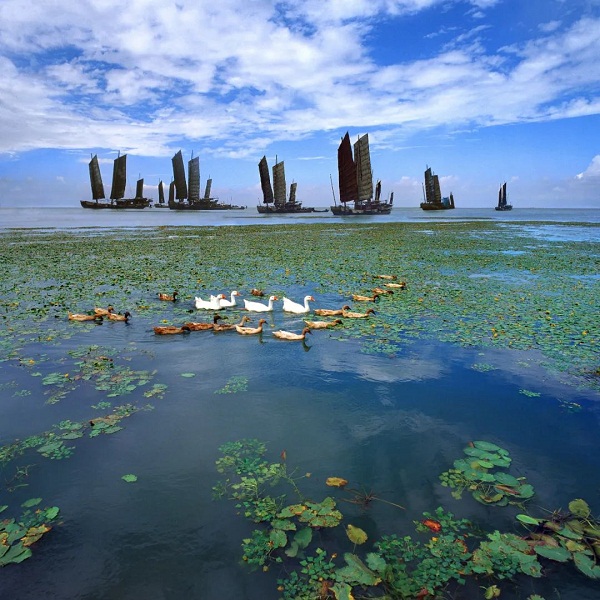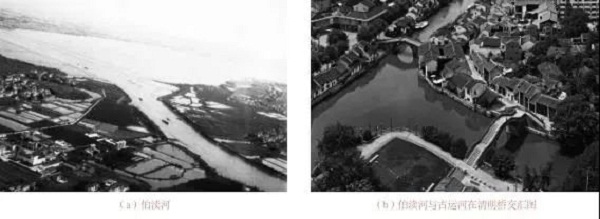

Wuxi has long been reputed as the "Pearl of Taihu Lake" thanks to its impressive natural assets and man-made spectacles. [Photo/WeChat account: wuxifabu2013]
Editor's note: A book about landscaping in Wuxi written by Sun Zhiliang, deputy director of the Wuxi City Planning Committee, was published by Tsinghua University Press recently. In the book, Sun reviews Wuxi's landscapes, culture and famous residents, highlighting the city's preference for landscaping since ancient times, and people's desire to live in this scenic city.
Throughout history, many cities have prospered because of their proximity to rivers. One such settlement is Wuxi, where many rivers in and surrounding it have greatly benefited the city's standing.
The landscape of the city is enriched by the beauty of the Yangtze River, the Grand Canal and Taihu Lake. The most beautiful section of Taihu Lake lies in Wuxi, with many famous parks scattered around its shores.
Wuxi has long been reputed as the "Pearl of Taihu Lake" thanks to its impressive natural assets and man-made spectacles. The waters are also believed to conceive the city's long history and rich human resources.
As early as 3,000 years ago, in order to give the throne to his brother Jili, Taibo, the eldest son of Emperor Zhouwu of the northern tribe, came here from Shaanxi with his younger brother Zhongyong and set up the State of Gouwu (now Meicun town of Xinwu district).

The Bodu Canal merges with the Grand Canal under the Qingming Bridge. [Photo/WeChat account: wuxifabu2013]
In order to transport soldiers and produce and to irrigate farms in Wuxi's suburbs, Taibo ordered the digging of the first artificial river in Chinese history – the Bodu Canal – about 3,200 years ago. This canal is the predecessor of the South Jiangsu section of the Beijing-Hangzhou Grand Canal in the Sui Dynasty (581-618). Today, it is one of the oldest canals in the world and is still functioning well.
Taibo promoted the combination of central and southern Chinese culture and created the Wu Culture. In the fifth year of the West Han Dynasty (202BC), Wuxi county was formally established. The name Wuxi, literarily meaning "no tin", was given because of the Tin Hill's dwindling resources of the metal.
As the birthplace of Wu Culture, Wuxi has given rise to a galaxy of talented personalities who have made contributions to the development of China's economy and culture… (Stay tuned to the series to learn more about Wuxi)
 Copyright © China Daily. All rights reserved.
Copyright © China Daily. All rights reserved.